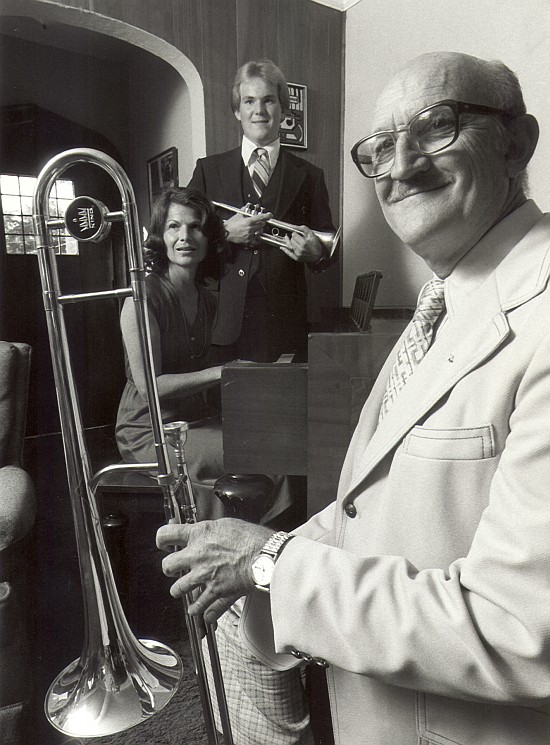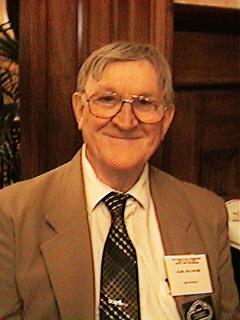 |
Karl KillingerMr. Killinger currently conducts the Iowa Military Veterans Band, the Des Moines Municipal Band, the ZaGaZig Shrine Band, and the Des Moines Consistory Band. |
 |
Karl KillingerMr. Killinger currently conducts the Iowa Military Veterans Band, the Des Moines Municipal Band, the ZaGaZig Shrine Band, and the Des Moines Consistory Band. |
Since my dad, Henry Killinger, had played baritone with the Sells-Floto Circus band, Karl King knew him. And after Mr. King moved to Fort Dodge, he convinced my dad to come to Fort Dodge to organize and then lead the United States Gypsum Mill Band. After we moved there, Dad played baritone in Karl's band. About then I came along, and my parents named me Karl after Karl King.
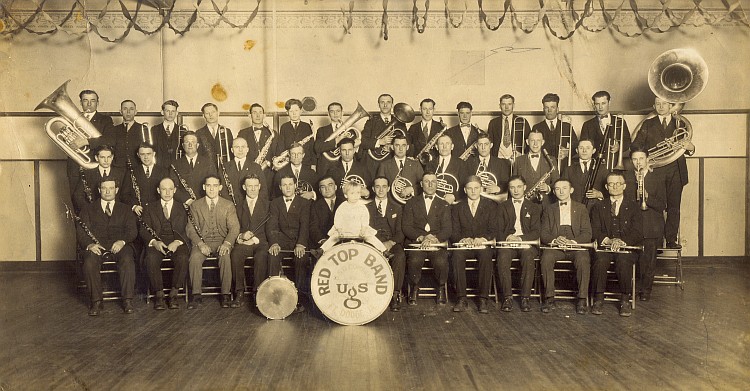
click to enlarge (large file - 3.5 mb)
The Red Top Gypsum Mill Band of Fort Dodge, Iowa
That's me there sitting on the bass drum. I was about one or so, so that picture must be from around 1925. That's Dad holding his baton [Henry Killinger is just behind the snare drum. To his right is the manager of the Gypsum Mill.].
This is a 1939 photo of me holding my dad's double bell euphonium when I was fourteen. When I came home after the war, Dad had parted with it; I wish he'd kept it.
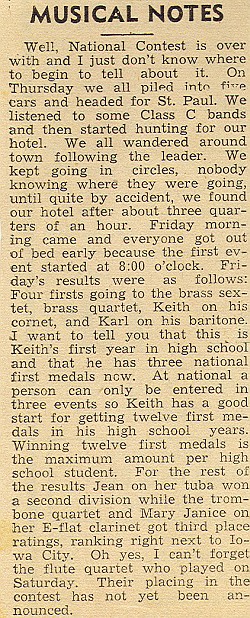
[Karl and his brother Keith are pictured several times in the article above. Sometimes pictured with his trombone and other times with a baritone, Karl happens to be shown next to his future wife, Evelyn, who is pictured in the flute quartet.]
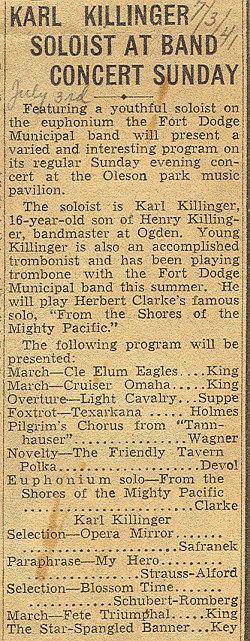
After my sophomore year in high school, I joined the King Band to play baritone and trombone. This was in 1939. On Tuesdays we practiced upstairs over Walt Englebart's harness shop. In the back were some cots where some players who didn't live close by slept. Walt was a cornet player and sometimes a drummer for Mr. King, and was the band's manager. If I remember correctly we played three concerts a week. Several ex-Sousa players were in the band at that time. I remember our pay was three dollars a concert or five dollars if you played a solo with the band.
After the war I started a dance band; it was a big band - about 17 players - and I bought this bus and painted it. We hauled our equipment and played all over for a couple of years. I remember once when Karl paid me to take equipment to the Spencer Fair when we [Karl King Band] were playing there.
Karl King was writing for C. L. Barnhouse (publisher), but sometimes to earn a bit of money he would compose for himself under the name Carl Lawrence (Lawrence was his middle name). When Mr. King wanted to start his own publishing business, he borrowed money from Dad to help start the company. He would pay this off a bit at a time until his Uncle Sam A-Strut book was successful enough to finish payment to Dad.
I remember clearly my first IBA convention. My dad had paid for my membership. The convention that year (1942) was in Waterloo, so I drove to Fort Dodge and accompanied Walt and Karl to that convention.
| When we performed at the Iowa State Fair, we would take along the cots which the King Band owned and sleep in the rooms under the Grandstand, though in the early days we stayed in tents we brought along. We often played an hour-long live broadcast (radio) to start the day. We didn't know ahead of time which tunes we would perform that day. We were expected to just pull up the piece and play it. Once during one of these broadcasts we were doing a piece that had a 12/8 section. When we got to that part and stumbled, Karl stopped us and announced, Now that we've rehearsed the thing, let's go back to letter C and play it. | 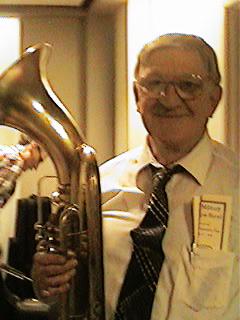 |
|
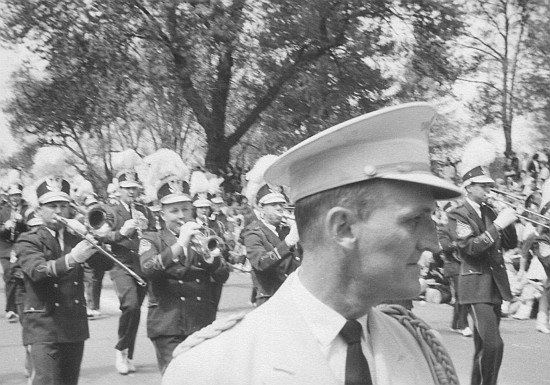
1964 Veishea Parade in Ames
Sometimes when Karl King (we'd call him teach) spoke about contemporary pieces, he called that style damn temporary music.
Sometimes at North High School, I'd ask him to conduct a number when we had our music festival and all the bands would play that night. He'd conduct one of his numbers.
That's me [at the right] ready to come out from behind the curtain.
